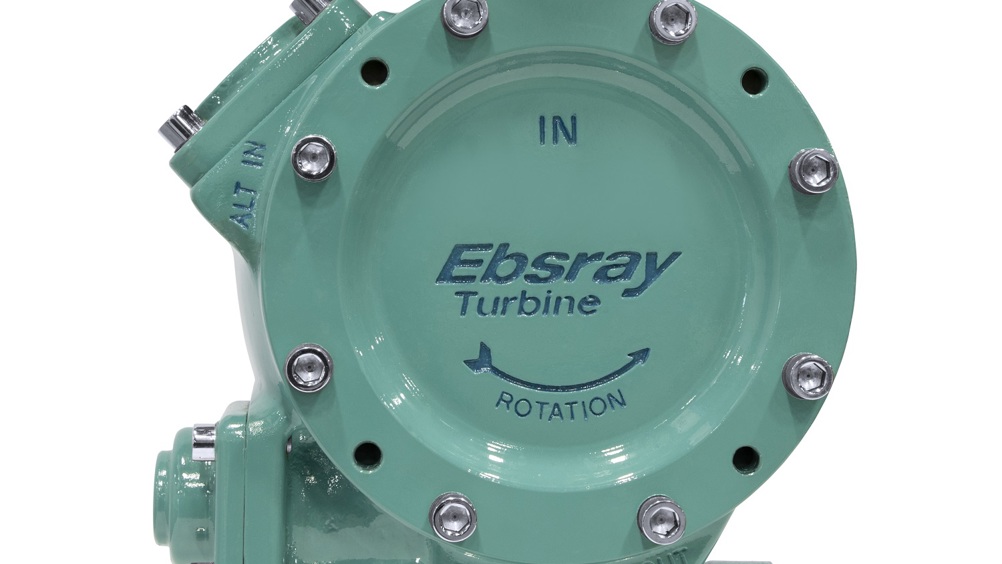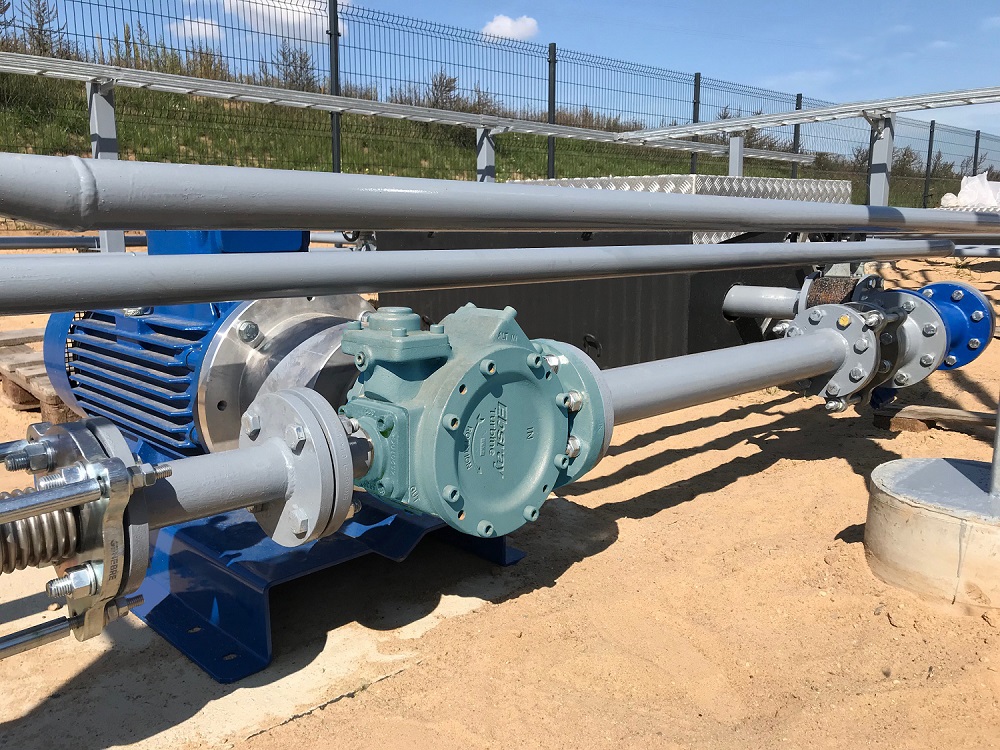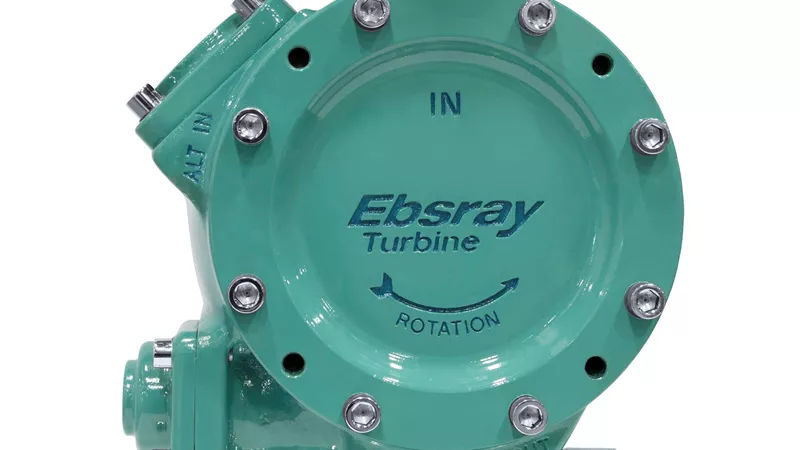Stephen Basclain, business development manager for Ebsray, Cromer, Australia, explores the versatile nature of regenerative turbine pumps and why they are a preferred choice over other types of pump technology.

Ebsray’s HiFlow Series regenerative turbine pumps provide high-volume flow rates and are designed especially for LPG, propane, butane and autogas applications. – Image: Ebsray/PSG
Autogas or liquified petroleum gas (LPG) is a mixture of propane and butane. This fuel source is unique because it can be stored and transported as a liquid but burned as a gas. Autogas dispensing installations frequently utilise regenerative turbine pumps.
While autogas applications present a share of challenges, they are not unique. In fact, many applications using hard-to-handle liquids such as ammonia, various refrigerants and many hydrocarbons feature low viscosities, sometimes as low as 0.1 centipoise (10 times thinner than water) and vapoUr pressure near to normal atmospheric pressure. This creates problems for many pumping technologies as these fluids can be difficult to seal and the low viscosity increases the risk of internal slippage during operation.
One of the problems that comes from pumping volatile liquids is cavitation. If the pump’s inlet pressure falls below the liquid’s vapour pressure, then vapour bubbles will form in the liquid. These bubbles will travel through the pumping chamber and, as the pressure increases, implode and cause cavitation, which can damage the pumping hardware.
Regenerative turbine pumps work well in these applications because they are immune to the damage caused to other pumps by cavitation and can handle low viscosities whilst maintaining high pressures. They also have several other advantages over alternative pump types.
 Regenerative turbine pumps are designed for low-flow, high-head duties with low-viscosity liquids, making them applicable in multiple applications. – Image: Ebsray/PSG
Regenerative turbine pumps are designed for low-flow, high-head duties with low-viscosity liquids, making them applicable in multiple applications. – Image: Ebsray/PSG
A closer look at regenerative turbine pumps
Although it has performance characteristics that closely resemble those from a positive displacement (PD) pump, the regenerative turbine pump is rotodynamic. Regenerative turbines combine the high discharge pressure of a PD pump with the performance flexibility of a centrifugal pump. It operates using a rotating, non-contacting, free-wheeling disc with many small buckets or cells on its periphery that functions as an impeller.
These small cells, typically 50-60 on each side of the impeller, scoop up the liquid when it enters the suction port of the turbine pump. The impeller then accelerates the liquid within the cells around the narrow hydraulic channel that surrounds them.
This fast spiral motion, at very high velocity, creates pressure thus establishing the differential pressure capability of the pump, which is why it’s called a regenerative turbine pump. Other names for this technology include peripheral pumps, centrifugal regenerative pumps and regenerative pumps among many others. Regardless of the name, this technology is categorised in the rotodynamic family of pumps.
Transferring liquids
Regenerative turbine pumps thrive when transferring liquids at high pressure and low flow, while also handling entrained vapours or liquids at or near their boiling point. These conditions typically limit the performance and functionality of most pump technologies, causing unreliable performance, cavitation, noise and vibration. By virtue of their design, regenerative turbine pumps don’t suffer from any of these conditions. Specifically, these pumps can handle viscosities of 0.1 to 50 cSt with differential pressures up to 300 psi (20 bar) and have a maximum allowable working pressure of up to 493 psi (34 bar) to enable handling liquids with high vapour pressures.
Typical regenerative turbine pumps generate flow rates up to 52.8 gpm (200 L/min) however some variations of these pumps are capable of handling even higher flow rates. Some newer iterations of this technology can reach peak flow rates as high as – and potentially higher than – 158.5 gpm (600 L/min).
Pumping versatility
The impeller and its cells give the pump its versatility. The spiral motion, as well as its speed, diminishes the chances for cavitation and pulsation by smoothing the fluid and collapsing the vapour bubbles immediately when they form. A smooth flow along with a hydraulically balanced design does not create detrimental effects and allows the regenerative turbine pump to function without vibration or noise in most pumping situations.
These functional traits and benefits allow regenerative turbine pumps to span beyond typical applications, such as autogas. This technology also functions optimally in applications known for having low viscosity fluids, such as aerosols and refrigerants. Other applications include ammonia, vaporiser feed and cylinder filling as well as boiler feed water.
Advantages over side-channel pumps
Regenerative turbine pumps have several advantages over comparable pump technologies, such as side-channel pumps that operate in similar applications. Side-channel pumps, like regenerative turbine pumps, are great at performing well under poor suction conditions and both technologies are self-priming. The differences come down to the size and ease of maintenance. Side-channel pumps have a larger footprint due to their design. They are generally made up of multiple pumping stages, these pumps are considerably larger than their single-stage counterparts.
In an LPG installation specifically, a side-channel pump might require four to eight stages to meet the duty parameters. With that many stages, side-channel pumps, which already have a large footprint, also become more complex to accommodate these applications’ demands. Regenerative turbine pumps, using a single-stage, offer the same performance as a four- or five-stage, side-channel pump and can operate at two-pole speeds, compared with typically four-pole speed limitations of side-channel pumps.
Additionally, with a larger footprint and more complex design than regenerative turbine pumps, side-channel pumps feature a considerable number of components, many of them prone to wear and eventual failure. Repairing or replacing these wear parts adds to the pump’s maintenance cost and total ownership cost.
Regenerative turbine pumps, meanwhile, have a compact footprint and a less complex design that features up to 25 components. This smaller, simpler design makes maintenance a short and efficient task. Less time on maintenance and fewer wear parts gives regenerative turbine pump owners better longevity and substantial financial savings. Also, because regenerative turbine pumps are simpler in design, they do not require a veteran engineer to maintain them. Any technically competent individual with moderate experience can handle this task.
Comparison with other PD pumps
Other PD pumps, such as sliding vane, have their share of advantages. The most distinct include having a higher hydraulic efficiency and better effectiveness during priming over comparable pump technologies.
While regenerative turbine pumps don’t have those specific advantages, there are others that allow them to work well in similar applications. For example, regenerative turbine pumps don’t have as many moving parts as comparable technology, which allows them to operate continuously without many drawbacks.
On the maintenance side, the lack of multiple moving parts ensures that operators don’t have to worry about several pieces, each with their own life and service cycle. Fewer moving parts also means fewer shutdowns for scheduled maintenance, along with the need to keep several replacement parts in stock for eventual replacement. Operators can save more money this way too because they only need to worry about a smaller number of parts, which tend to have better longevity than the smaller pieces found in other pumping technology.
The major wear parts on regenerative turbine pumps, which are the impeller and the mechanical seal, also do not force owners to take them out of service during maintenance or replacement. In many cases, these parts can actually be replaced within an hour without disconnecting the pump from the pipework and, in frequent cases, without disconnecting the motor.
On the performance side, regenerative turbine pumps can operate continuously without the detriments of pulsation and cavitation that affect other pumping technology. This continuous operation allows operators to use them without frequent stops, generating more hours of use in various applications.
 Stephen Basclain, business development manager for Ebsray, Cromer, Australia. – Image: Ebsray/PSG
Stephen Basclain, business development manager for Ebsray, Cromer, Australia. – Image: Ebsray/PSG
Conclusion
When it comes to applications with low viscosity liquids and poor suction conditions or liquids near their boiling point, several pumping technologies can be used, but none of them have the same features and versatility as regenerative turbine pumps. Their performance with an array of liquids in different conditions allows the technology to thrive in a broad range of applications. The challenges posed by these liquids, such as entrained vapour and cavitation, don’t pose a threat to this pumping technology’s integrity, which means owners can expect a long life from regenerative turbine pumps with long periods between any maintenance.


